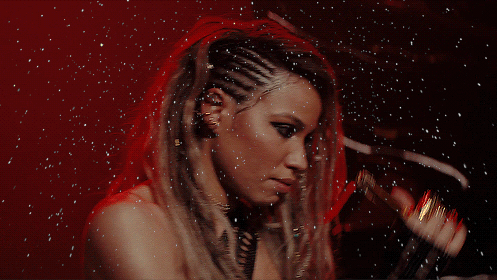I'm very in favor of abolishing the police and prisons, but I still have strong feelings of wanting to see the "bad person get what they deserve". I know the vast majority of people in prison are in for nonviolent crimes and prison is torture and the whole system's fucked but I don't know what to do with the beliefs about justice I've been taught my whole life. I know revenge/punishment isn't justice but I'm not sure I know what is. Do you have any recommendations (books, articles, videos, etc)?
hey, grappling with this is normal. if you’ve ever heard the phrase “kill the cop in your head,” that’s partly what it refers to. reframing what justice means to us and the kinds of justice we can envision is one of the first and most important steps of thinking about abolition.
luckily, abolitionists have been organizing, thinking about, writing about, dreaming about, and sharing this information for decades. people who are new to abolition don’t have to imagine a new kind of justice. in many areas, that justice is already in practice.
i’m going to link to and mention a lot of information here, so i really advise that interested folks take their time and come back to these resources as they’re able.
- Abolition Journal put together a study guide here that’s full of great resources. i recommend checking the whole thing out, but Week 6 in particular goes into alternatives to prison.
- Transformharm.org, created by Mariame Kaba, is truly a treasure trove of resources, articles, and curricula for people who are new to transformative justice.
- The Abolitionist Toolkit created by Critical Resistance is another great resource that I frequently share. (Critical Resistance in general is a terrific place for more info.)
- Survived and Punished is an amazing organization and they’ve curated a bunch of resources here.
- Here’s a Police and Prison Abolition Resource Guide (PDF) with just. So many links to resource kits, articles, videos, etc etc etc.
Many of the above guides and hubs combine written, audio and visual resources so I hope people are able to find what works for them. If you have specific access needs, let me know and I’ll see what I can round up.
For podcasts, I highly recommend Rustbelt Abolition Radio.
For books that I personally have read/own, I recommend Are Prisons Obsolete? by Angela Davis; Conflict is Not Abuse by Sarah Schulman; The Revolution Starts at Home (anthology); and We Do This Til We Free Us by Mariame Kaba.
as you can see, there is just so, so much information out there, developed over decades by people who intimately understand harm, injustice and the carceral system. I actually had to reign in how much info I could have shared just to keep this post from being eight miles long lol. The question of “what do we do instead of police and prisons?” isn’t a simple one, of course, and it isn’t a question one person has the answer to. Hopefully these resources are a useful jumping off point for you.


















